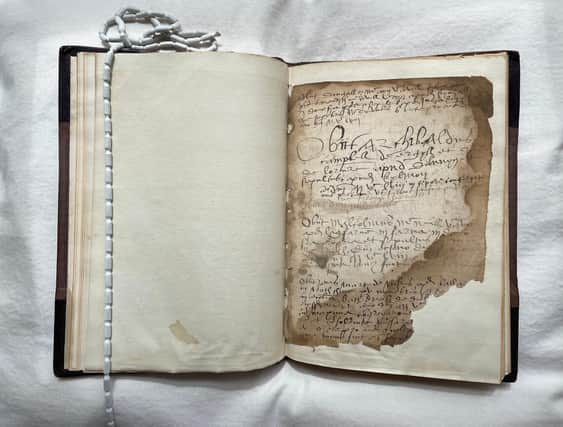National Library of Scotland's purchase of Chronicle of Fortingall helps us see into the past – Scotsman comment


Thankfully, through the work of historians and archaeologists, we can gain some understanding and this is seldom more clear than when we read the actual words of people who lived long ago.
And that is why the National Library of Scotland’s purchase of the 16th century Chronicle of Fortingall at auction for £25,000 is so important.
Advertisement
Hide AdAdvertisement
Hide AdIt was written in Scots, Latin and Gaelic by scribes from the MacGregor family between 1554 and 1579 and it includes accounts of contemporary events, poetry and other short texts. Scribes from the same family also wrote the earlier Book of the Dean of Lismore – the earliest surviving collection of Gaelic poetry compiled in Scotland – which is already in the National Library’s collection.
Dr Ulrike Hogg, the library’s manuscripts curator, said: "The two manuscripts are so closely connected that it’s difficult to describe one without reference to the other. It’s a great privilege for us to be able to bring the manuscripts together again after their compilation some 450 years ago.”
The Chronicle includes details of medicines used at the time, a commentary against women and drunkenness, and works by Robert Henryson and William Dunbar, makars who wrote in Middle Scots in the mid-15th century.
The Scotland of 500 years ago can seem like a faraway place, but with such historical treasures, we can still travel through these sometimes strange, sometimes familiar, lands and meet their people.
Comments
Want to join the conversation? Please or to comment on this article.